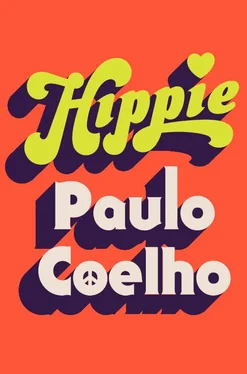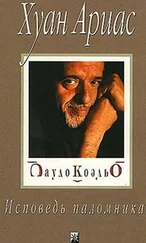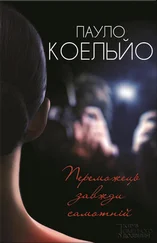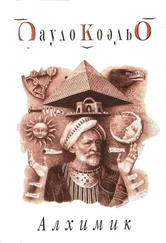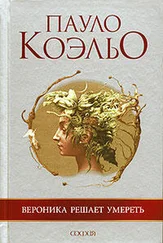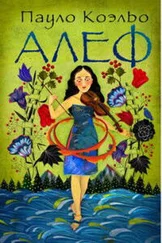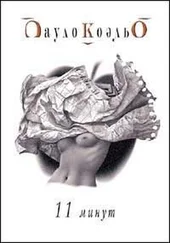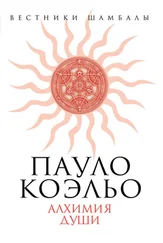Following orders. She’d receive the call from the driver of the so-called Magic Bus, an experienced and kind man who waited for her in the lobby of the hotel, and who also struggled to understand the interest of the foreign press in the subject but had decided to help however he could.
She scanned the lobby, there wasn’t a single hippie to be found, only a man who looked like Rasputin and another man about fifty years old, with no trace of hippie about him, seated next to a young woman.
“He’s the one who will answer your questions,” the driver said, gesturing to the fifty-year-old, who had traveled all this way in the company of his daughter. “He speaks your language.”
The advantage was they could converse in French; that would make the interview much quicker and easier. She began by placing them in time and space (Name: Jacques / Age: 47 / Birthplace: Amiens, France / Profession: Former director at a leading French cosmetics firm / Marital status: Divorced).
“As I’m sure they’ve told you, I’m here working on an article for Agence France-Presse about this culture that, from what I’ve read, has its origin with the Americans…”
She kept herself from saying the “rich little playboys without anything better to do.”
“…and has swept across the entire globe.”
Jacques nodded, while the journalist thought once again of adding “or actually, wherever rich people live.”
“What exactly do you want to know?” he asked, regretting having agreed to the interview because the rest of the group was out exploring the city and having a good time.
“So, we know that it’s a movement without prejudices, based on drugs, music, huge open-air concerts where anything goes, travel, absolute and total disregard for those who are fighting at the moment for an ideal, a free, a more just society…”
“For example…”
“For example, those trying to liberate the oppressed, denounce injustice, take part in the essential class struggle, in which people give their blood and their lives so that the only hope for humanity, socialism, might no longer be mere utopia and instead become a reality.”
Jacques nodded—it was useless to react to that sort of provocation, the only thing he’d do would be lose his precious first day in Istanbul.
“And who have a much freer, I would say more débauché, view of sex, where middle-aged men have no problem being seen next to girls young enough to be their daughters…”
Jacques was about to let this one pass, too, but then another voice cut in.
“The girl young enough to be his daughter—I’m guessing you’re referring to me—is, in fact, his daughter. We weren’t introduced; my name is Marie. I’m twenty years old, born in Lisieux. I study political science, admire Camus and Simone de Beauvoir. Musical tastes: Dave Brubeck, the Grateful Dead, and Ravi Shankar. At the moment, I’m writing a dissertation about how the socialist paradise people are laying down their lives for, also known as the Soviet Union, has become every bit as oppressive as the dictatorships imposed on the Third World by capitalist countries like the United States, England, Belgium, France. Anything else you want to know?”
The journalist thanked her for her response, swallowed hard, considered for a second whether the girl was lying, decided she was not, then sought to hide her surprise and concluded that this, perhaps, was the guts of her article: the story of a man, a former director at a French multinational, who in a moment of existential crisis decides to abandon everything, take his daughter with him, and set off around the world—without considering the risks this could entail for the girl, or, in this case, young woman. Or precociously wise old woman, judging by her way of speaking. She found herself at a disadvantage and needed to recover her initiative.
“Have you experimented with drugs?”
“Of course: marijuana, mushrooms, a few chemical drugs that made me sick, LSD. I’ve never touched heroin, or cocaine, or opium.”
The journalist looked over at her father, who listened calmly at his daughter’s side.
“And are you one of these who supports free love?”
“Ever since they invented the pill, I see no reason why love shouldn’t be free.”
“And do you put this into practice?”
“That’s none of your business.”
The father, seeing they were headed for a confrontation, decided to change the subject.
“Aren’t we here to talk about hippies? You provided an excellent summary of our philosophy. What more do you want to know?”
Our philosophy? A man on the cusp of fifty was talking about “our philosophy”?
“I want to know why you’re going to Nepal by bus. From what I understand, and from what I can tell from the clothes the two of you are wearing, you have enough money to go by airplane.”
“Because the most important thing to me is the journey. It’s meeting people I’d never have the opportunity to meet flying first class on Air France, as I’ve done so often before—no one talks to anyone there, even if they’re sitting next to one another for twelve hours.”
“But there are…”
“Yes, there are buses that are more comfortable than this rickety old school bus with terrible suspension and seats that don’t recline—I imagine that’s what you were wanting to say. It just so happens that in my previous incarnation—in other words, during my career as a director of marketing—I’d already met everyone I needed to know. And, to tell you the truth, each of them was a copy of the others—the same rivalries, the same interests, the same ostentation, a life completely unlike that of my childhood, when I worked at my father’s side in a field near Amiens.”
The journalist began to leaf through her notebook; she was clearly at a disadvantage. It was difficult to provoke these two.
“What are you looking for?”
“The phrase I wrote down about the hippies.”
“But you summed us up so well: sex, drugs, rock, and travel.”
The Frenchman was managing to get deeper under her skin than even he imagined.
“You think that’s all there is to it. But it’s so much more.”
“So much more? Then show us, because when I decided to come on this trip, at my daughter’s invitation, I could see just how unhappy I was. I didn’t have time to exactly figure out the details.”
The journalist said it was all right, she had what she needed—and she thought to herself: I could make up whatever I want from this interview, no one would ever know. But Jacques wasn’t about to give up. He asked her if she wanted a coffee or tea (“Coffee, I’m tired of this sweetened mint tea”), Turkish coffee or regular (“Turkish coffee, I’m here in Turkey; it really is ridiculous to filter out the liquid, the grains ought to be there, too”).
“I think that my daughter and I deserve to learn a bit. We aren’t sure, for example, where the word hippie comes from.” He was clearly being ironic, but she pretended not to notice and decided to carry on. She was dying for a coffee.
“Nobody knows. But, if we were to be very French about it and try to find a definition for everything, the idea of sex, vegetarianism, free love, and communal living has its origin in Persia, in a cult founded by a guy named Mazdak. We don’t know much about him. However, as we were finding ourselves forced to write more and more about this movement, a few journalists came upon a different origin: among the Greek philosophers known as the Cynics.”
“Cynics?”
“Cynics. Nothing to do with the meaning we give the word today. Diogenes was the group’s most famous proponent. According to him, we ought to set aside whatever society imposes on us—all of us were raised to have more than we need—and return to primitive values. In other words, be in touch with the laws of nature, depend on little, find joy in each new day, and completely reject all that we grew up with—power, gain, avarice, that sort of thing. The only purpose in life was to free themselves of what they did not need and find joy in each minute, in each breath. Diogenes, by the way, lived in a barrel, according to legend.”
Читать дальше
